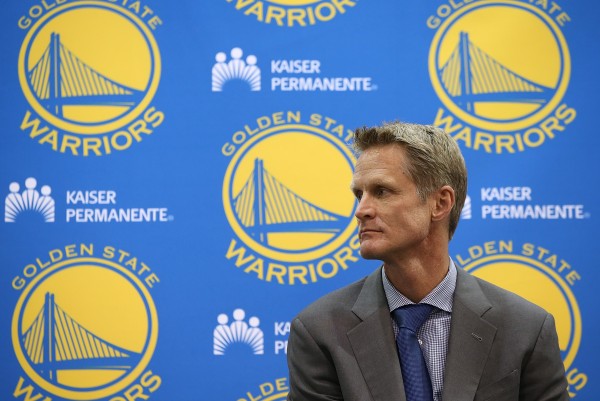Before the Golden State Warriors get to 73 wins, they need to reach 72.
That’s basic math, but the simple progression of numbers doesn’t begin to tell the story which has consumed the 2016 NBA season.
In professional basketball or any other sport, numbers can and do acquire larger-than-life significance.
.406 (Ted Williams in 1941).
56 (Joe DiMaggio’s hitting streak).
17-0 (the 1972 Miami Dolphins).
72-10 — the 1996 Chicago Bulls.
When numbers become permanently fixed in the public memory, it is only natural for subsequent generations of athletes and coaches to strive to break those records. The bar is set; future competitors try to clear that bar, not merely reach the same height. We are conditioned to think in terms of reaching higher than before, and rightly so. We are aspirational beings. Ambition, properly nourished and cultivated, is a vital life force, something which animates us and gives purpose to our waking moments on this earth.
It is good and right and proper to focus on 73 wins as the standard the Golden State Warriors should strive to attain. Nothing should be said which counters that noble inclination.
However, one can fully honor the Warriors’ push for 73 — now in its final, fateful days — and still speak well of the idea that winning 72 games is quite substantial, and something which would not (and should not) cast the Warriors in a diminished light.
If the Warriors win “only” 72, it will be easy to think of their quest as a failure — a reminder of how historically improbable this NBA season has been — but the purpose of this piece is to stick up for the idea that 72 wins would genuinely deserve plenty of fanfare. More precisely, it would be enough to make the Warriors’ 2016 season better than the Chicago Bulls’ 1996 campaign.
Let’s briefly flesh out this point.
When the 1996 Bulls won 72 games, the second-best team in the NBA was in the opposite conference. The Seattle Sonics won 64 games, but they didn’t have to worry about being the No. 2 playoff seed in their conference. The second-best team in the East that season was the 60-22 Orlando Magic. The Bulls were able to sweep the Magic in the Eastern Conference Finals, the kind of result a 12-game difference in the standings would suggest.

For the Warriors and the Spurs, the dynamics are different. The Warriors — as thoroughly as they’ve beaten San Antonio in Oracle Arena this season — still needed to win their 70th game (in Game 79 of the season) to finally secure the No. 1 seed in their conference. San Antonio still has a chance to tie the 1972 Los Angeles Lakers with 69 regular season wins… and the Spurs will be a 2 seed in the West playoffs.
This is not to diminish what the 1996 Bulls did; it merely enhances what the 2016 Warriors have done: Fending off a 68- or 69-win opponent within one’s own conference — dealing with playoff seeding questions the 1996 Bulls never had to face — lends a dimension of added significance and heft to the Warriors’ achievement.
If they don’t get 73, yes, a measure of disappointment will be felt and internalized by the Warriors. However, if we’re going to draw a line between 73 and 72 — which is perfectly fine — let’s also draw a line between 72 and 71.
To me, a true failure on the part of the Warriors (and even then, “failure” needs to be placed in quotation marks) would be to not match the 1996 Bulls. Stopping at 71 would leave Golden State short of the Bulls. As long as the Warriors hit 72, the numbers would say that Golden State isn’t second-best. As long as the Warriors hit 72 — for reasons just explained — history would likely view Golden State’s regular season as the best ever.
An NBA title — as long as it doesn’t require a Game 7 (Michael Jordan never needed seven games to win an NBA Finals series) — would then affirm the idea that the 2016 Warriors have climbed higher than any other single-season team in NBA history.
Would 73 be great and fantastic, a moment in which a remarkable record is relegated to the past? Of course.
That said, as long as the Warriors get to 72 and then win it all without need for a Game 7 at any point, their place in history should be secure.
That place? It sure ain’t second.


